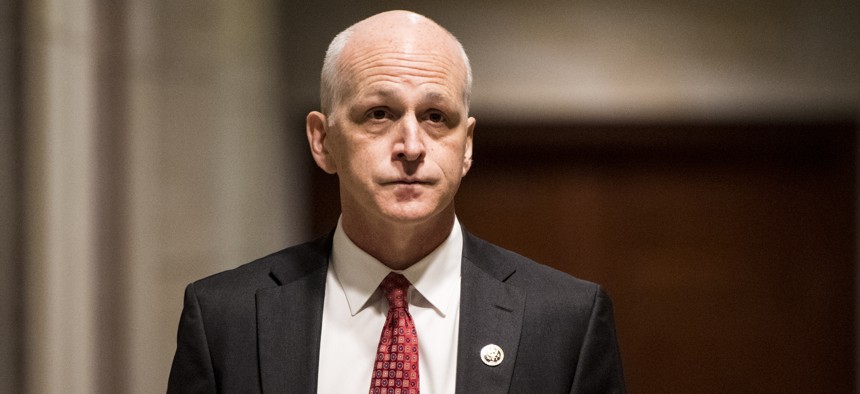
Rep. Adam Smith, D-Wash., on Capitol Hill. Photo By Bill Clark/CQ Roll Call
HASC Chair: White House Is Slow-Rolling Defense Budget Details
“Get us the numbers before May 10,” Rep. Adam Smith said Tuesday.
A top Democrat accused the Biden administration of slow-rolling the details of the White House’s fiscal 2022 budget proposal and warned that if Congress does not get the spending plan within a few weeks, lawmakers would not be able to pass the legislation by Oct. 1.
The warning from Rep. Adam Smith, D-Wash., the House Armed Services Committee chairman, comes just days after the White House said it would request about $715 billion for the Pentagon next year. But that plan, known as the“skinny budget,” lacked specific details—a common maneuver for an incoming administration.
“I am deeply concerned about the Biden administration dragging their feet on getting us the damn budget,” Smith said during a virtual Reagan Institute event. “I understand they have other priorities—and that's the answer that we get back.”
Smith said the White House Office of Management and Budget is waiting to “get the numbers from the White House” and other cabinet officials.
“The White House itself is not doing the job they should be doing right now and I am really worried,” the lawmaker said. “If we get into mid to late May, and we don't have the specific budget numbers, then you're guaranteed a continuing resolution. We don't have the time to do our job.”
The White House did not immediately respond to a request for comment. Smith said he’s been unable to get an answer from the White House about when the proposal will arrive.
“I can't get the White House to take my calls on this one,” he said. “Just send it to us. We need it in order to pass the budget and move forward.”
When do lawmakers need the spending proposal if there is any chance of passing before Sept. 30, the end of the fiscal year? “Get us the numbers before May 10,” Smith said.
In 2017, the Trump administration released its “skinny budget” in mid March, but it did not send lawmakers a detailed spending plan until May 23.
The fiscal 2022 budget is the first in a decade not constrained by spending caps that were put in place in 2011 when lawmakers were unable to strike a long-term budget deal. Mackenzie Eaglen, a defense budget expert with the conservatice American Enterprise Institute, argued lawmakers and the White House should be working on a two-year spending deal.
“This is the Wild, Wild West, fiscally speaking, where the Budget Control Act-era is over without agreement between the two parties on what the numbers should be just overall, generally speaking,” Eaglen said during the same Reagan Institute event. “I don't see how you can have regular order and have appropriations bills move through that regular order, which also guarantees a continuing resolution.”
A continuing resolution caps spending at the prior year’s spending level, but also prevents the Pentagon from starting new projects, ending old ones or changing the quantities of items.
“Everything is all signs pointing to a continuing resolution, which of course does unique damage to the military, more so than any other federal entity because of the Department of Defense's sheer size and what it contracts out,” Eaglen said.
Correction: An earlier version of this story misstated where Smith spoke.







